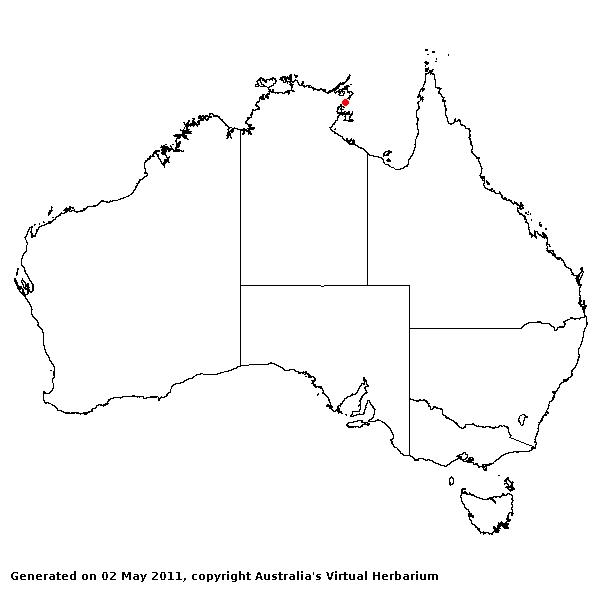Oryza officinalis* Wall. ex G.Watt.
Dict. Econ. Prod. India 5: 501 (1891). Classification.
(GPWG 2001) : Subfamily Ehrhartoideae. Tribe Oryzeae.
Type of Basionym or
Protologue Information: HT: Haenke s.n., Philippines (PR).
Recent synonyms: Oryza minuta auct.
Key references
(books and floras): [2002] D.Sharp & B.K.Simon, AusGrass, Grasses of
Australia (as O. minuta), [2009] A.Wilson (ed.). Flora of
Australia, Vol 44A. Poaceae 2 (364).
Habit.
Perennial. Stolons present. Culms geniculately ascending or decumbent,
50–200(–300) cm tall. Leaf-sheaths smooth, glabrous on surface. Leaf-sheath
auricles absent. Ligule an eciliate membrane, 5 mm long, erose, truncate or
obtuse. Leaf-blades 15–80 cm long, 7–23 mm wide. Leaf-blade surface
scaberulous, glabrous.
Inflorescence.
Inflorescence compound, a panicle. Panicle ovate, 7.5–42 cm long.
Spikelets.
Spikelets pedicelled. Fertile spikelets 1-flowered, comprising 2 basal sterile
florets, comprising 1 fertile floret(s), without rachilla extension, elliptic
or ovate, laterally compressed, 3.7–6.4 mm long.
Glumes. Upper
glume 0.1–0.2 mm long. Florets. Basal sterile florets 2 or more, barren,
without significant palea. Lemma of lower sterile floret 10 % of length of
spikelet, 1 -nerved.
Fertile lemma 3.7–6.2
mm long, keeled, 5 -nerved. Lemma apex awned, 1 -awned. Median (principal) awn
3–18 mm long overall. Palea 3 -nerved, 1-keeled. Palea apex awned. Lodicules
present. Anthers 6. Grain 2.3–4.4 mm long.
Continental
Distribution: Tropical Asia and Australasia.
Australian
Distribution: Northern Territory, Queensland.
Northern Territory:
Darwin & Gulf. Queensland: Cook.
Notes.
Native (?). SE Asia, India to New Guinea (Sri Lanka, Burma, Thailand, Cambodia,
S Vietnam, Malesia). Flowers May.

